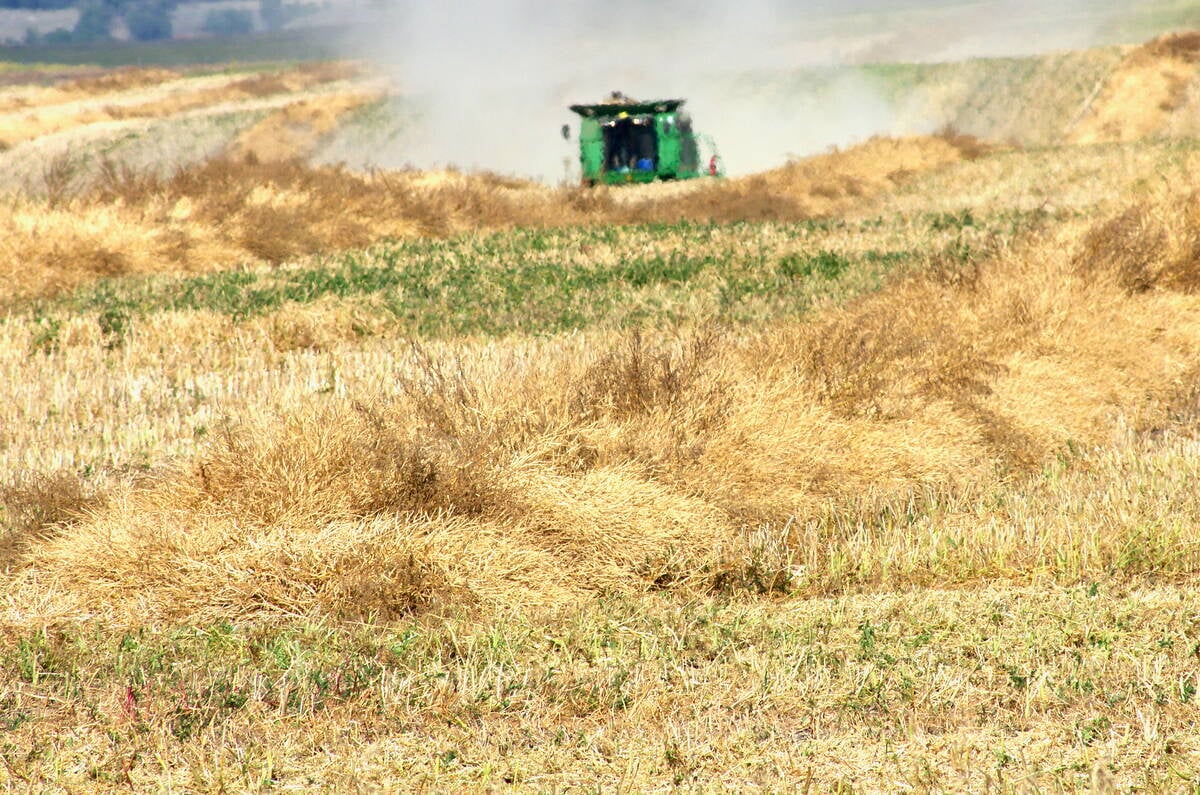YORKTON, Sask. – Garry Liebrecht faces the post-Crow reality every time he ships grain to the local elevator.
Recently his malt barley brought him an initial payment of $1.08 per bushel after deductions, his winter wheat $1.18 and his barley 28 cents.
“That’s a joke,” he noted recently while in Yorkton, close to the centre of the end-of-the-Crow changes to transportation rates.
The area has seen little of the surge in value-added processing that some predicted in the 1990s, when the end of the Crow was being discussed and the implications analyzed.
Read Also

Manitoba searches for Plan B on canola oil exports
A new report explores Manitoba’s current canola oil trade and possible alternative markets to the U.S.
For Liebrecht, the end of the Crow meant that bulk export grain farming either had to be done on a large scale to be efficient and to produce enough margin to support a family, or not done at all.
“You have to farm big or you’re not going to make it, and I’m not sure that we’re going to make it this year because the expenses are too high.”
Liebrecht was outraged that the government killed the Crow without much compensation to farmers like him, who live in an area where freight rates suddenly doubled and branch lines were cut.
But he hunkered down, expanded his grain acres from 3,000 to 10,000, and put his faith in good grain being worth at least as much as it cost to grow. As long as grain prices kept up with input costs, a more efficient farm should be able to make more money, he thought.
He has now decided that wasn’t a safe assumption.
“We figured (grain prices) would go up to cover it,” said Liebrecht. “But they can control everything else in the world, and we can’t control food prices.”
For Yorkton area farmers who stayed in grain, times have been tough. Some farmers converted cropland to pasture and added cattle, but there hasn’t been the hoped-for boom in feedlots.
Only now, almost a dozen years later, is there hope for more value-added processing in this landlocked area: two giant canola crushing plants have been announced for Yorkton. Liebrecht thinks local crushers might be able to pay better than companies making overseas sales because the canola’s right there.
“Right now for canola they charge you Vancouver freight. Maybe we can save at least $1 a bushel we’re paying now.”
Back in 1995 Liebrecht was a grain elevator agent, a career he’s glad to have behind him.
“They’re meaner,” he said of farmers. “I wouldn’t want to be a grain buyer right now.”
While times have been tough, Liebrecht said his two sons are committed to making it work, regardless of the bitter decade they’ve endured.
“They won’t leave farming if it’s up to them,” he said.















